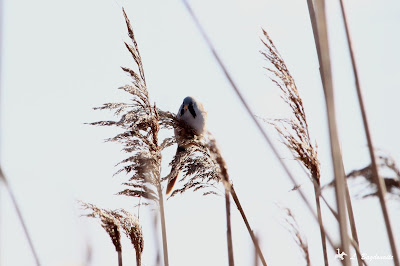New year, same passion
At the beginning of this month I started working on my Master's degree project. At first I was planning to do it in one semester, but after some reconsideration have decided that a full year will be much better. I have a lot of work ahead of me, lots of things to learn and understand and while it's rather scary (cause after this I have no idea what will happen next), I am looking at it with positivity and enthusiasm!
I've always been super stressed about public speaking and have already started panicking about the oral presentation of my thesis that I'll have to do next January. I know it's still twelve months away, but I can't help but constantly feel this looming fear.. I do realize it's unreasonable, but I've always been like that and despite all hopes it has not changed through the years. Therefore in addition to working on my thesis, I want to concentrate on finding ways of dealing with this kind of stress, because I definitely don't want it accompanying me forever.. So if there's someone out there reading this and you have any advice on how to deal with the fear of public speaking, or stories about overcoming it - please, let me know, I'll be more than gratefull!
On a more positive note, I have been finally able to get outdoors to one of my favorite spots for bird watching around Gothenburg this Saturday. I went there with hopes of finding bearded tits (or reedlings) Panurus biarmicus.
 Even though Carl Linnaeus placed these birds in the genus Parus together with the tits, they are most closely related to the larks - Alaudidae. Bearded reedlings breed in large reedbeds (who could have guessed?!) at lowland lakes and swamp margins. Populations in Europe are mainly sedentary, however they are subject to eruptive post-breeding and wintering movements. Cold winters can severely reduce the number of bearded reedlings; makes me quite happy that so far the winter here in Gothenburg hasn't been too cold (or cold at all).
Even though Carl Linnaeus placed these birds in the genus Parus together with the tits, they are most closely related to the larks - Alaudidae. Bearded reedlings breed in large reedbeds (who could have guessed?!) at lowland lakes and swamp margins. Populations in Europe are mainly sedentary, however they are subject to eruptive post-breeding and wintering movements. Cold winters can severely reduce the number of bearded reedlings; makes me quite happy that so far the winter here in Gothenburg hasn't been too cold (or cold at all).
They mainly feed on invertebrates and their larvae in summer and vegetable matter (especially reed seeds) in winter. The species has a clear sexual dimorphism, males are distinguished by their beautiful black "moustache" while females don't have any black and are more uniform in color. Unfortunately I wasn't able to get any clear shots of females yesterday, so for now I am leaving you with some pictures of the beautiful bearded reedling males!
_______
http://www.iucnredlist.org/details/22716776/0
Collins Bird Guide 2nd edition
By Lars Svensson, Killian Mullarney and Dan Zetterström
Collins, 2009





Comments
Post a Comment